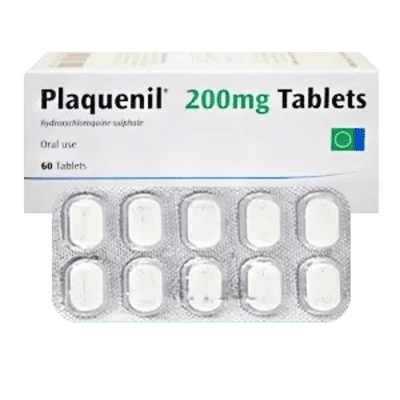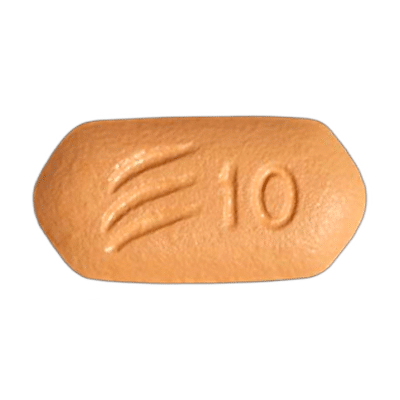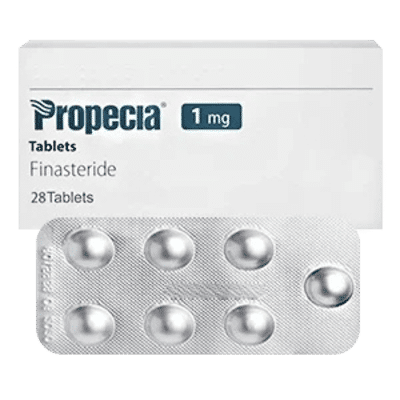Used Plaquenil for rheumatoid arthritis and must say it really made the symptoms more manageable. Despite some gastrointestinal side effects, the overall experience was positive.

Plaquenil
- Quality products
- Support 24/7
- Fast delivery
What is it?
Plaquenil is a drug that is widely used in medical practice. Its main active ingredient is hydroxychloroquine, which belongs to the class of antimalarial drugs. Moreover, Plaquenil has a long history of use in the treatment and prevention of malaria in adults and children. It is also used to treat certain forms of lupus and rheumatoid arthritis in adults. Due to its effectiveness and wide range of actions, the drug has proven itself as an indispensable tool in the treatment of these diseases.
Composition
The composition of Plaquenil includes the active substance hydroxychloroquine sulfate. This substance is known for its antimalarial, anti-inflammatory and immunomodulatory properties. In addition to hydroxychloroquine, Plaquenil contains auxiliary components that help maintain the stability and effectiveness of the drug.
- Hydroxychloroquine sulfate is the main active ingredient responsible for the therapeutic effect of the drug.
- Microcrystalline cellulose - is used as a binder, ensuring the integrity and stability of the tablet.
- Magnesium stearate - serves as a lubricant and improves the process of tablet formation.
Each of these components plays a key role in ensuring the stability, bioavailability and effectiveness of Plaquenil when taken by patients.
How to use?
Using Plaquenil requires careful attention to ensure its maximum effectiveness and safety. Below are the main recommendations for using this product.
- Before starting to take Plaquenil, you should consult a doctor to clarify the diagnosis and select an individual dosage. Do not start treatment without consulting a specialist.
- Tablets should be taken orally with a sufficient amount of water, which ensures better absorption of the active substance in the body.
- The duration and regimen of administration are determined by the doctor depending on the disease and the bodys response to treatment. Independent changes in dosage may lead to a decrease in the effectiveness of treatment or the appearance of side effects.
Do not neglect the doctors instructions and follow the established recommendations to achieve the best treatment results.
How does it work?
The mechanism of action of Plaquenil is based on the ability of hydroxychloroquine to interfere with metabolic processes occurring in the cells affected by the drug. In particular, it changes the chemical environment in lysosomes, which leads to disruption of the processes necessary for the survival and reproduction of some protozoan parasites that cause malaria. This allows for effective treatment of the disease and prevention of its development.
In addition to the antimalarial effect, Plaquenil exhibits other therapeutic effects that have been thoroughly studied and documented. For example, its anti-inflammatory properties have an extremely positive effect on the condition of patients with rheumatic and autoimmune diseases, such as lupus and rheumatoid arthritis. This is due to the inhibition of certain pro-inflammatory mediators, which reduces inflammation and improves the general condition of patients.
Indications
Plaquenil is used to treat and prevent a number of diseases that require a special approach. The main indications for prescribing this drug are:
- Prevention and treatment of malaria in adults and children when other means have proven ineffective or unavailable.
- Treatment of systemic and discoid lupus in adults, helping to alleviate symptoms and prevent exacerbations of the disease.
- Treatment of rheumatoid arthritis in adults, providing a decrease in inflammation and relief of joint pain.
These indications determine the wide range of application of Plaquenil in clinical practice to support the health of patients and improve their quality of life.
Contraindications
Like any other medicine, Plaquenil has a number of contraindications that must be taken into account when prescribing and taking the drug. Violation of these contraindications can lead to serious adverse effects and a threat to the patients health.
- Mainly contraindicated in case of known hypersensitivity to hydroxychloroquine or other components of the drug, which can cause allergic reactions.
- The drug should not be taken in case of serious liver or kidney dysfunction without careful assessment by a doctor.
- Pregnancy and breastfeeding are also situations when the use of Plaquenil requires special caution and only under the supervision of a doctor.
It is always important to observe safety limits and not to ignore the possible risks associated with taking Plaquenil.
Side effects
Although Plaquenil is considered an effective drug, there are potential side effects that may occur while taking it. Knowing about these effects is important to minimize possible unpleasant consequences and to quickly seek medical attention if necessary.
- The most common side effects include gastrointestinal problems such as nausea, vomiting, or abdominal pain.
- Some patients may notice changes in the skin, including rash or pigmentation changes.
- Side effects from the central nervous system, such as dizziness, sleep disturbances, or headaches, are possible.
If you experience any of these effects, consult your doctor for treatment adjustments or an alternative drug.
Frequently asked questions
Plaquenil Reviews and Experiences
I started taking Plaquenil as prescribed by my doctor to combat lupus. Although the adaptation process was not easy, over time the condition improved. I believe that the drug fulfills its purpose, despite several unpleasant moments.
Using Plaquenil helped relieve the symptoms of malaria. It was important to follow the dosage prescribed by the doctor, and the result was impressive. I noticed almost no side effects, which was a real plus.









